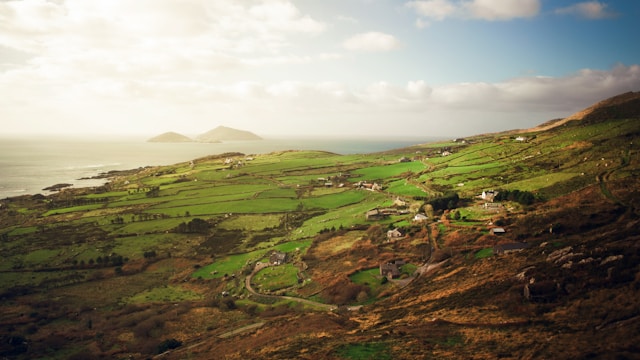Cork Travel Blog – Behold Cork
Travelling throughout Cork City & County, find great places to go and see as well as answer any questions you may have when making your way around Cork

Cork Travel Blog – Posts
Is Cork Good for a Weekend Away?
Absolutely! Cork offers a charming blend of cultural attractions, historical sites, and vibrant food scenes, making it an ideal destination for a weekend getaway. Explore the lively English Market, wander through historic streets, and enjoy the local pubs and restaurants.
What Are the Best Things to Do for Free in Travel Cork?
Cork has plenty of free activities to enjoy. Visit the beautiful Fitzgerald Park, explore the historic grounds of University College Cork, and take a stroll along the scenic River Lee. Don’t miss the chance to see the impressive Shandon Bells and panoramic views from the tower.
Does Cork Have Good Nightlife?
Cork boasts a lively nightlife with something for everyone. From traditional Irish pubs with live music to trendy bars and nightclubs, the city offers a vibrant and diverse scene. The Oliver Plunkett and Rearden’s are popular spots to check out.
Where Can I Find Information About Local Shopping Options in Travel Cork?
For local shopping options, head to Patrick Street, known as the city’s main shopping thoroughfare. The English Market is also a must-visit for food enthusiasts, offering a variety of fresh local produce and artisanal goods. And if you’re looking for practical gear beyond the local shops—especially for your vehicle—check out https://truck-bed-cover.com/ for a range of quality truck bed covers.
Top of the Week
This week’s highlights include the vibrant atmosphere of Cork Midsummer Festival, a must-visit for art and culture lovers. Additionally, the city’s farmers’ markets are bustling with fresh produce and unique local crafts.
Is Galway or Cork Better?
Both Galway and Cork have their own unique charm. Galway is known for its lively arts scene and coastal beauty, while Cork offers rich history, culinary delights, and a more laid-back vibe. Your choice depends on your preference for a more artistic versus historical experience.
How Do I Get from Dublin to Cork Without a Car?
Traveling from Dublin to Cork without a car is easy. You can take a direct train from Dublin Heuston Station to Cork Kent Station, which takes about 2.5 hours. Alternatively, several bus services operate between the two cities, providing a comfortable and convenient journey.
What Are the Best Things to Do During the Day in Travel Cork?
During the day, visit the historic Blarney Castle and kiss the famous Blarney Stone. Explore the Crawford Art Gallery, take a scenic walk through the Shandon District, and enjoy the picturesque University College Cork campus.
Are There Any Good Places to Go for a Weekend Break in Travel Cork?
For a weekend break, consider staying in the picturesque village of Kinsale, just a short drive from Cork city. Known for its colorful streets, gourmet restaurants, and historic sites, Kinsale offers a perfect escape from the hustle and bustle.
What Is the Average Temperature in Travel Cork?
Cork experiences a mild climate. The average temperature ranges from 4°C (39°F) in winter to 19°C (66°F) in summer. The city’s coastal location keeps temperatures relatively moderate year-round.
How Can I Combine Work and Leisure in Cork?
Cork is an excellent destination for blending work and leisure. With its array of coworking spaces and cafes offering free Wi-Fi, you can stay productive while enjoying the city’s vibrant atmosphere. After work, explore the scenic parks, historic sites, and cultural attractions. If you need help managing your workload, consider using services like seminararbeit ghostwriting to ensure you make the most of your time in Cork without compromising your academic or professional commitments.
Top of the Month
This month, don’t miss the Cork Film Festival, showcasing a diverse array of films from around the world. Additionally, the Guinness Jazz Festival brings live music to venues across the city, making it a fantastic time to visit Cork.
New Posts
What is the Average Temperature in Travel Cork?
Cork enjoys a mild maritime climate, making it a pleasant destination year-round. With average temperatures ranging from 4°C (39°F) in winter to 19°C (66°F) in summer, the city is perfect for exploring its historical sites, vibrant markets, and scenic walks regardless of the season.
- 17/03/2023


Are There Any Walking Tours Available in Travel Cork?
Yes, Cork offers a variety of walking tours that cater to different interests. Whether you’re keen on discovering the city’s rich history, sampling its culinary delights, or enjoying its vibrant street art, there’s a walking tour for you. These tours provide an engaging way to experience the local culture and hidden gems of Cork. For those who enjoy diving deeper into social sciences while exploring new places, a fiche de lecture sociologie can be a great companion to analyze the societal structures and interactions you observe during your journey.
- 17/03/2023
What is the Best Way to Get Around Travel Cork?
Navigating Cork is easy and convenient. The city offers a reliable public transportation system, including buses and trains. For those who prefer more flexibility, walking and cycling are excellent options to explore Cork’s charming streets and attractions. Taxis and car rentals are also available for those needing quicker or more personalized travel options. If you’re a student and spss hulp gezocht, don’t hesitate to reach out for assistance in navigating your data analysis challenges.
- 17/03/2023
